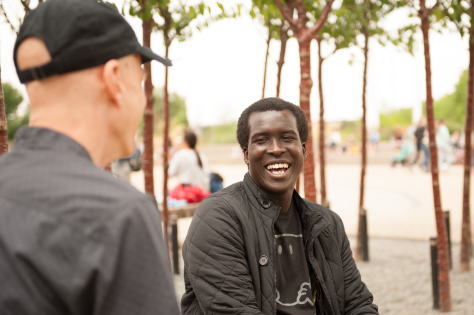Achieving everyday equality for disabled people
Life today is still much harder for the 13 million disabled people in this country than it needs to be. In 2017 disabled people still face barriers to employment and are not getting the care and support they need to...
Life today is still much harder for the 13 million disabled people in this country than it needs to be. In 2017 disabled people still face barriers to employment and are not getting the care and support they need to live independently. More disabled people than non-disabled people are living in poverty or are materially deprived. And an additional 275,000 families where someone is disabled have fallen into poverty in the last two years.
Scope, together with the Fabian Society, will be discussing disabled people’s financial security and how to achieve everyday equality for disabled people at Labour party conference.
Scope is a pan-disability charity and our mission is to achieve everyday equality with disabled people in Britain. Everyday equality is about making sure we all have the same opportunities in life. That disabled people aren’t made to feel inferior, aren’t treated unfairly, and aren’t overlooked because of their impairment or condition. It’s about fairness, justice and rights – at home, at school, at work and in our communities.
Disabled people tell us that everyday equality can’t be achieved without a steady income, enough money to pay the bills and cope with life’s unexpected events. For many disabled people – although not all – everyday equality is about having a job.
Our welfare system plays an important role in increasing disabled people’s financial security and in supporting those who want to work into employment. Disabled people tend to be out of work for longer periods of time and many disabled people face extra costs due to their impairment or condition.
Financial support for disabled people, such as income replacement benefits and extra cost payments, play a crucial role in addressing these inequalities and creating a level playing field. But the current system is flawed and the assessments used to determine support needs do not accurately identify the barriers disabled people face in their everyday lives. And many disabled people feel that the benefits system is not treating them with fairness, dignity and respect.
An overhaul of disability benefit assessments is needed to ensure that disabled people are financially resilient, have access the support they need to overcome challenges to securing employment and meet extra costs.
Too many disabled people are not able to access the support they need to enter, stay and progress in work. The disability employment gap – the gap between the employment rate of disabled people and non-disabled people – has stood at over 30 percentage points for a decade. Disabled people are twice as likely to be unemployed as non-disabled people, even though many are pushing hard to get jobs.
This calls for radical reform of the gateways to support for unemployed disabled people. The Work Capability Assessment fails to capture the barriers that disabled people face in entering and staying in work, with 62 percent of fit for work decisions overturned at appeal. The WCA should be the start of a process that ensures all disabled people are able to access specialist employment support that is tailored to their needs and offered on a voluntary basis.
Disabled people spend an average of £550 a month on costs related to their impairment or condition. These costs may include expensive items of specialised equipment, higher heating bills, or more costly insurance premiums. Personal Independence Payment (PIP) is vital in helping disabled people meet some of these costs. However, many disabled people experience difficulties when applying for PIP. Two thirds of disabled people are successful when they appeal a decision following their assessment for PIP, suggesting fundamental flaws in the system.
As an extra costs payment is it vital that PIP captures the full range of someone’s extra costs. The current assessment process might identify that a wheelchair user requires an adaptation to their shower but it might not identify that the same individual has higher energy bills due to reduced mobility. We believe the PIP assessment should be reformed to better identify the extra costs disabled people face.
The government failed to introduce legislation in the Queen’s speech which would improve disabled people’s financial security. Instead debates around Brexit are expected to take up a lot of government and parliamentary time and energy over the next two years. But life carries on for the 13 million disabled people in this country which is why it is vital that the we do not lose sight of the importance of improving disabled people’s financial security.

